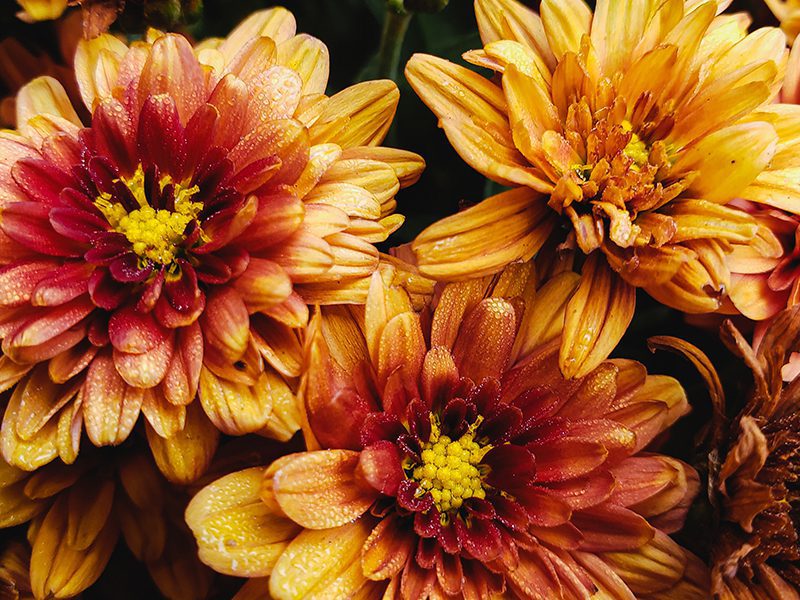This article comes from guest contributor Lisa Dove of Forest Park.
As a gardener, I am ready to say goodbye to this summer season. I cannot remember a summer that just seemed so brutal. We were either experiencing a monsoon or an extended long, dry period. It seemed like it got hot in June — and stayed that way through mid-August.
Of course, I’m not ready for the cold weather, but I’m starting to put my garden to bed early this year…Many of my favorite plants have either gone dormant (i.e. dead) or have barely survived.
This is what I have noticed in the garden:
- The number of butterflies (Monarch/Swallowtail) are way down. I didn’t get any eggs on my Milkweed or Parsley/Dill, so no caterpillars… That is something new this year.
- Marigolds and Zinnias did very well. Herbs like Basil, Rosemary, and Thyme did great, and I have lots of dried herbs for the winter. They all took the heat and dry weather like champs. I just didn’t plant enough of them!
- The hardy hibiscus I planted last year did very well with full morning sun and afternoon shade.
- I saw one hummingbird this year and it has only been in the last week or so, my guess is it is starting its migration.
- This was not a good year to put new shrubs in the yard. I spent a lot of money on water and they still died. (I don’t normally use potable city water for my garden, but this year was an exception).
I was also watching what plants the pollinators that made it into my garden preferred. It was interesting to note that they appeared to ignore the more colorful varieties of Cornflower and favored the native variety. I started reading and there is research out there that shows that all the newer varieties of flowering plants are not attractive to pollinators — even though we think they are great.
And so, with that, I’m going to make some changes for next year. I am going to embrace the fact that my front yard is full-bore sun. When you walk by, you might now see more herbs and tomatoes in the front bed among the daylilies. I am going to plant drought-resistant varieties and focus more on native plant species. Someone, please remind me of this in the spring because I’m sure it will be forgotten by then.
Hope springs eternal.
—Lisa Dove


